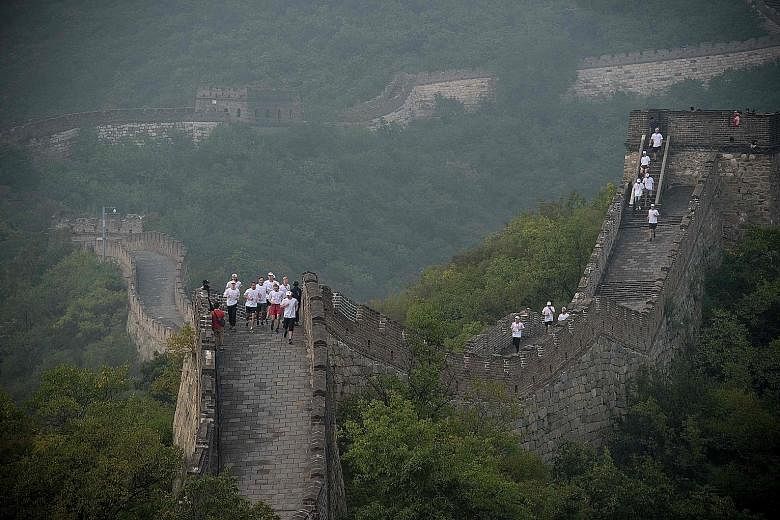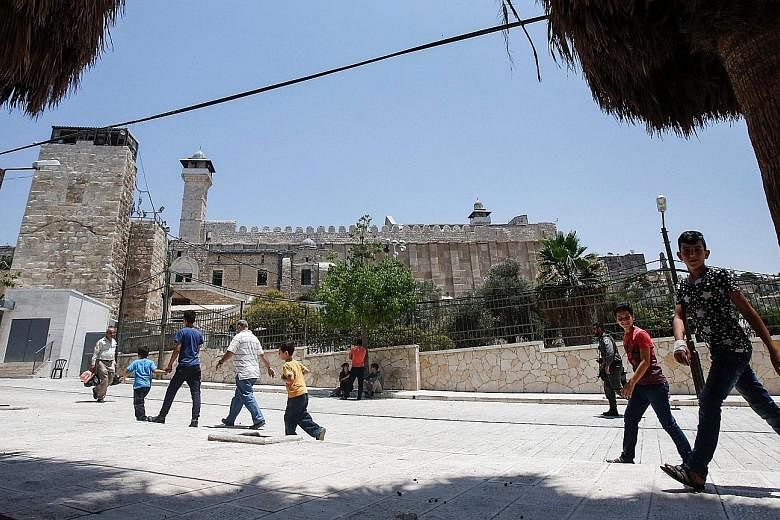WASHINGTON/JERUSALEM • The United States' decision to pull out of the United Nations cultural body, Unesco, has sent ripples through the struggling organisation and rattled member countries which worry others might follow suit.
Hours after the US announced it was walking away from the 195-member organisation, best known for inscribing World Heritage Sites such as the Great Wall of China, Cambodia's Angkor Wat and the Singapore Botanic Gardens, its ally Israel said it was withdrawing from it too.
The twin move comes after years of bickering at the organisation over the US' claim of "anti-Israel bias".
"This decision was not taken lightly, and reflects US concerns with mounting arrears at Unesco, the need for fundamental reform in the organisation, and continuing anti-Israel bias at Unesco," US State Department spokesman Heather Nauert said.
In 2011, then US President Barack Obama withdrew funding for Unesco amounting to about 22 per cent of its annual budget, over its acceptance of Palestine as a member. Washington is against any UN organisation that recognises the Palestinian territories as a state before a negotiated Middle East peace deal is struck.
In July, Unesco declared the Old City of Hebron in the occupied West Bank an endangered World Heritage Site, angering Israel which announced a US$1 million (S$1.35 million) cut in funding to the UN, accusing the cultural organisation of ignoring Jewish ties to the site.
Two months earlier, a Unesco resolution pointing to Israel as "the occupying power" in the city of Jerusalem, and urging it to refrain from changing the city's "character and status", also riled the Israelis.
-
Saying 'no' to participation
-
Since President Donald Trump took office, the United States has abandoned:
• The 12-nation Trans-Pacific Partnership trade talks, which he says will kill jobs in the US and hold down wages;
• The Paris climate deal, which Mr Trump says "hamstrings the United States while empowering some of the world's top polluting countries";
• Its backing for the Iran nuclear deal, arguing that Iran is getting much more than it is giving up under the agreement, and it is against the US' interest.
• The US is also reviewing its membership of the United Nations Human Rights Council, which it also accuses of being biased against Israel.
"The absence of the United States or any large country with a lot of power is a loss. It's not just about money; it's promoting ideals that are vital to countries like the United States such as education and culture," a Unesco-based diplomat told Reuters, warning that others could follow.
Based on UN regulations, the US withdrawal will become effective as of the end of December next year.
The move has triggered responses from France, Russia, Britain and others. Britain pledged to remain committed to Unesco, short for the United Nations Educational, Scientific and Cultural Organisation.
France's UN ambassador Francois Delattre said that "Unesco is about promoting our ideals and values through culture, education and science", adding that "we need an America that stays committed to world affairs".
The outgoing head of Unesco, Ms Irina Bokova, called the US withdrawal a "loss to multilateralism", while Russia's Foreign Ministry said the move by the US would disrupt a number of important projects planned by the UN agency.
The withdrawal threatened to overshadow the election of a new director-general yesterday at the organisation, which has 2,000 employees and is struggling with a lack of funds and beset by regional rivalries.
Professor Francois Heisbourg, chairman of the International Institute for Strategic Studies, said the US pullout could be seen as President Donald Trump sending a signal of support for the Israelis while underlining his "America First" policies.
"Unesco is an easier target than others: It's relatively small, it doesn't concern vital interests, and Unesco has gone much further than other UN organisations in recognising the Palestinian authorities," he told
Agence France-Presse




